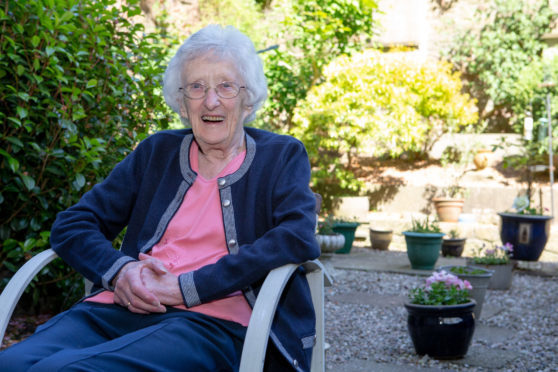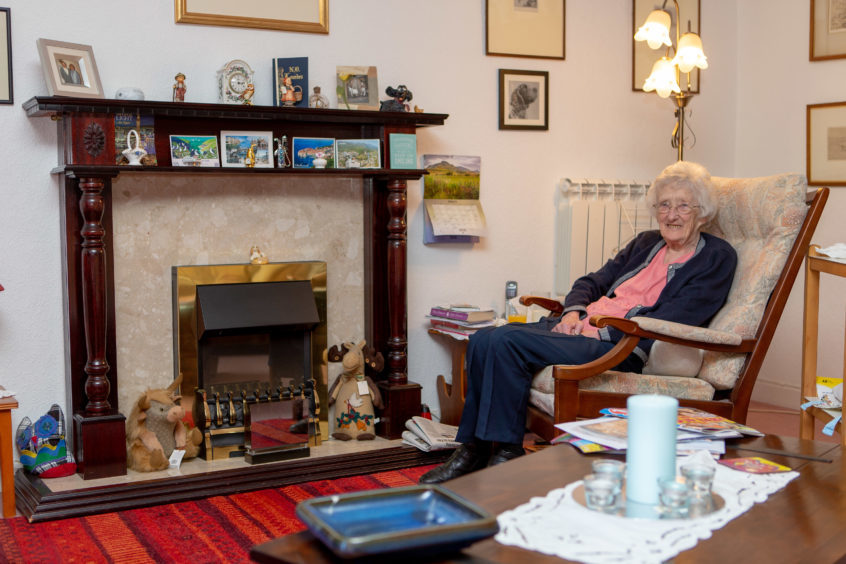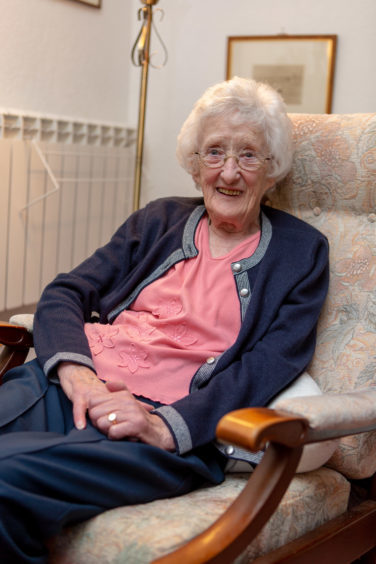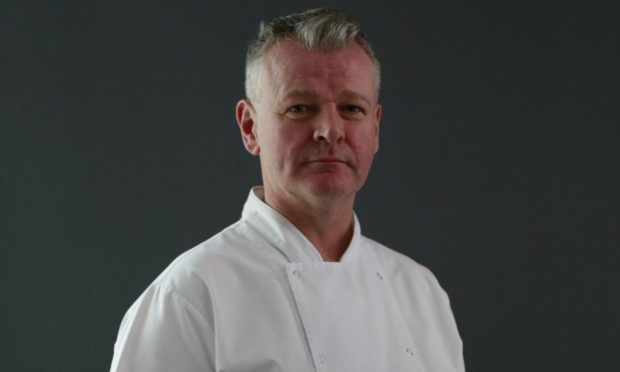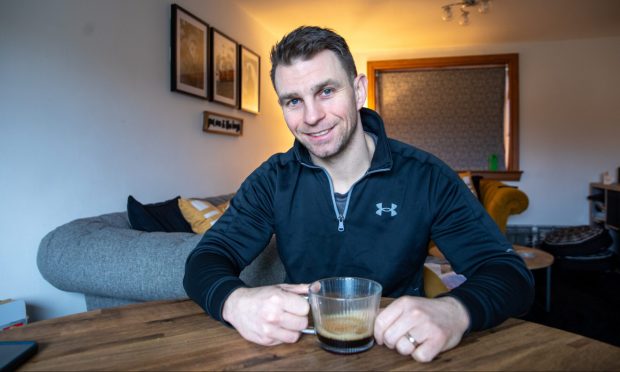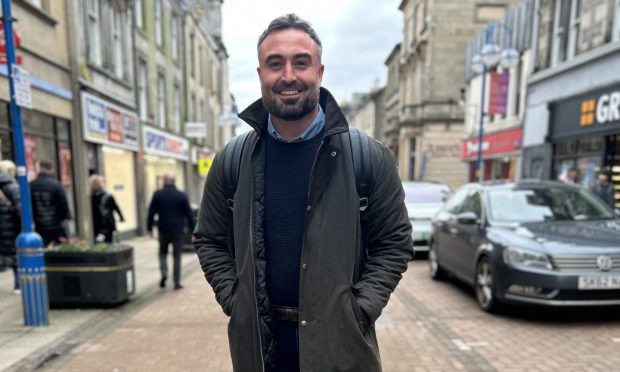Pat Orr has lived a proudly independent life. With an active work and social life, no-fuss attitude and workhorse mentality, Pat, now 78, has fought to stay as independent as possible after she was diagnosed last year with motor neurone disease (MND).
Now, during MND Awareness Week, Pat is sharing her diagnosis with the progressive terminal illness to help raise awareness of the condition and challenge some of the misconceptions around MND.
Born in 1939, Pat was raised and educated in Dundee and has spent her life working all over Europe. After working for her father’s companies in Dundee and Dublin, she later pursued her own career in London, then moving to Italy for 15 years to manage villas.
But in 1984, Pat moved back to Dundee to open an off licence with her father. When her father passed away in 1985, Pat decided to turn the store into a ladies’ nightwear and underwear shop.
She ran her business for 15 years, retiring in 1999 where she spent her time with her many friends and her dog Hattie. She has also spent her time as a prominent figure within the ‘Friends of Magdalen Green’ community group.
But Pat was left shocked when she was diagnosed with MND just nine months ago.
MND is a rapidly progressing terminal illness that stops signals from the brain reaching the muscles. This may cause someone to lose the ability to walk, talk, eat, drink or breathe unaided.
“Last January I lost my dog and I was very upset. Around the same time, I noticed that I was beginning to slur my speech when I was talking,” Pat recalls.
“I went to see the GP but the doctor thought it was grief. But when the GP discovered that I had lost a stone in weight, she started looking for different causes.
“Shortly after this I started having issues with my left hand and I had a few trips and falls. My left foot started dropping down and I tripped and split my head open on the pavement at the top of my street. Thankfully my neighbour was on the other side of the road and saw me and we went to Ninewells hospital.”
Despite suffering a nasty fall, Pat’s disposition and her unique character mean that she never allows the negatives of her diagnosis get in her way of her seeing the humorous side of life.
“I was still conscious – but I was totally embarrassed to hell! When I got to Ninewells they stitched me up and sent me home. I also fell in the garden at home – but that was stupidity. I had on welly boots which were too big and I ran to answer the phone and I landed straight on my face – come on!
“A physiotherapist then came to see me. They took one look and straight back to the doctor. After that I was sent to the neurologist for some tests.
“I thought I had suffered a mini stroke but the doctor thought otherwise. I was sent to neurology and they had me in for a week of intensive tests. The gentleman who saw me asked if I had heard of motor nerves and it clicked. I asked him if it was motor neurone disease, but he said he couldn’t say yet.
“I had heard of MND many years ago, but it never really sank in. But when I saw MND campaigner Gordon Aikman on TV I just started assuming. I was hoping it wasn’t MND but if it was I thought there’s no choice but to get on with it.”
It was in September that Pat’s diagnosis was confirmed.
“I was on my own when they told me that it was MND. I was really upset, but my attitude was, no matter what it is, you’ve just to get on with it and live life from day to day. I try not to be a burden to anybody – what else you can do – but give me a dog!”
Pat’s good friend Rhoda has stuck by Pat on every step of the journey.
“We’re all led by Pat.,” she smiles. “I think that if anybody was to say anything to her, she would just say: ‘Don’t be ridiculous, that’s the way I’m dealing with it and that’s that.”
Pat agrees. “I can’t see any other way of doing it,” she says. “I suppose this has been my attitude all my life – if you have an upset, try your best to knock it back and get on.”
“I was brought up as the middle child, with an older brother and a younger brother. I had to grow up fending for myself, the only girl amongst the boys. I think that has a lot to do with my attitude towards life.”
Despite her strong-willed nature and her good-humoured disposition Pat has had to face some lack of understanding of MND and what being diagnosed with the condition means.
During MND Awareness Week the charity MND Scotland, which has supported Pat, is running a ‘myth-busting’ campaign to help challenge some of the misconceptions around MND.
“It would be fair to say that some of Pat’s friends don’t grasp the reality of Pat’s situation. It’s just a lack of understanding of MND,” Rhoda reveals.
Pat has been surprised by just g how many people have never heard of it.
“I get some people who say: ‘You’ll feel better when the good weather comes in’. I reply: My dad said that. He died’. But on the whole, they tend to overprotect and that’s what you don’t want. You want to keep your independence as long as you can.
“I still live on my own, that’s important to me. I’ve been on my own since I was 18. I spent two years living with my mother in between and that was hell!
“I’m not able to do things that I would like to do. My worst complaint is my voice. I can’t walk very far now and I have to be very careful where I put my feet. I get tired easily and when I get tired my speech gets worse.
“I know that there’s going to come a time that I’m house-bound and that I’m going to need carers – but I want to hang on to my independence as long as possible,” she continues.
“If I was explaining MND to somebody, I would say it’s a debilitating disease you never want to get. I’m 78 years old – I’ve had a very good life. I’m one of the lucky ones.”
Pat is grateful for the support she has received from MND Scotland since her diagnosis.
“I’m very happy with them, I think the support is fantastic,” she enthuses.
“I go to the MND Scotland Support Group in Dundee and it’s so interesting to see different people, of different ages, at different stages of MND.
“Rhoda takes me and I have so many wonderful friends who are always looking out for me, but I don’t want to impose on them. I get so much help from everybody that you don’t want to go over the top if you can help it.
“I haven’t had a single day since I was diagnosed that I haven’t had somebody visit me – I think that’s fantastic.”
Craig Stockton, CEO of MND Scotland, explains: “During MND Awareness Week we’re running a new campaign to tackle some of the stigmas and misconceptions that exist around MND and I would like to thank Pat for sharing her story.
“People affected by MND across the country have been speaking out about their experiences and we hope this will help more people understand the nature of MND and its emotional and physical impact on those affected by this devastating disease.”
Visit mndscotland.org.uk/MNDAware for more information about MND Scotland’s ‘Myth-Busting MND’ campaign.
